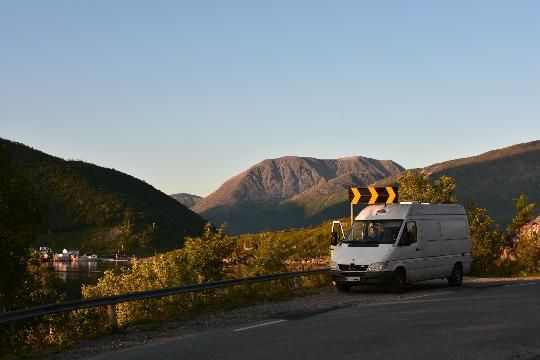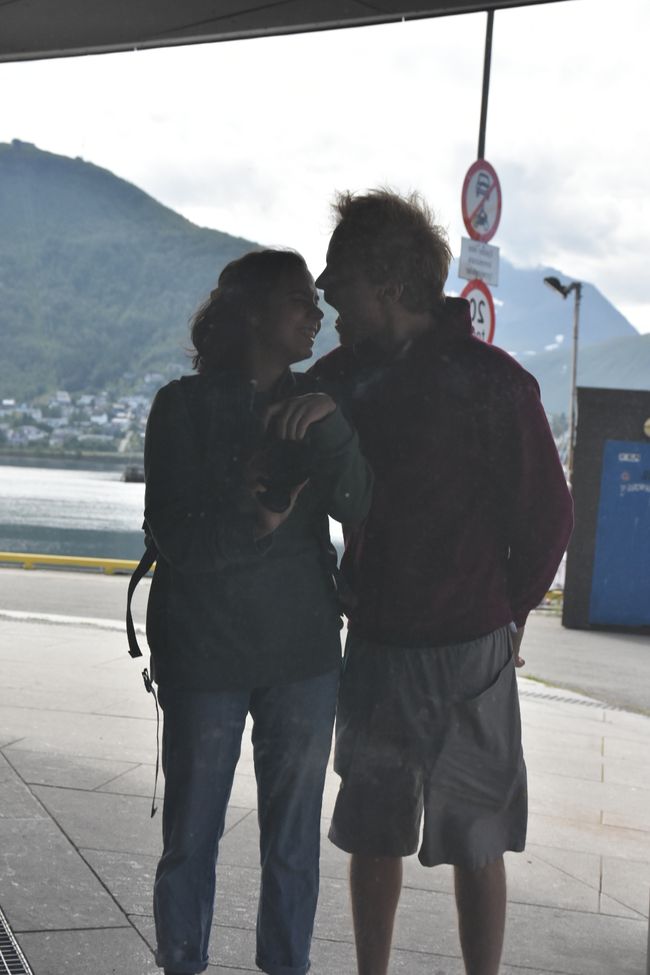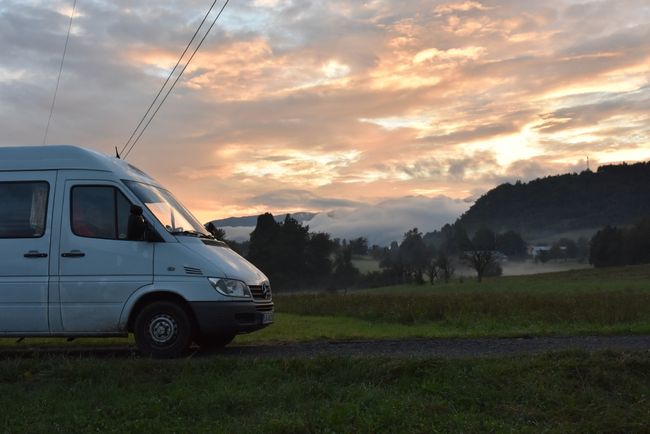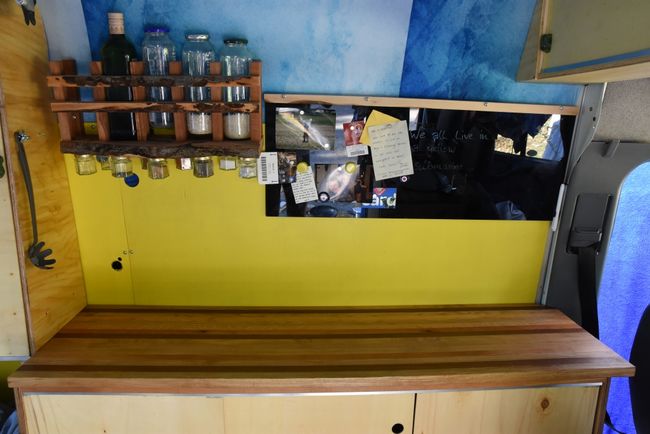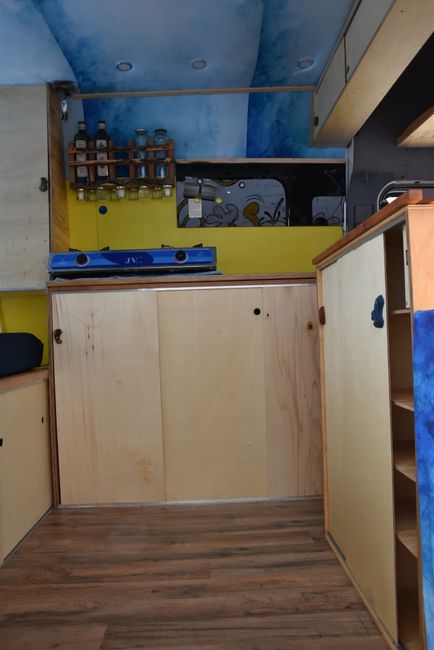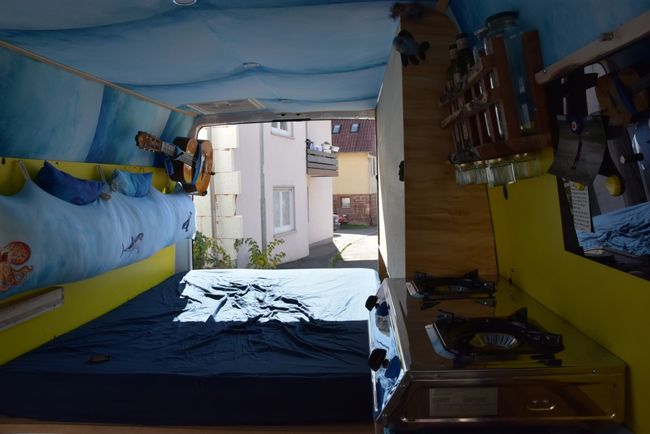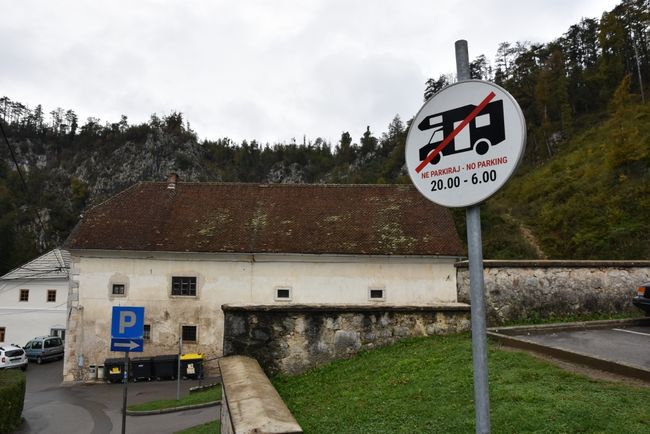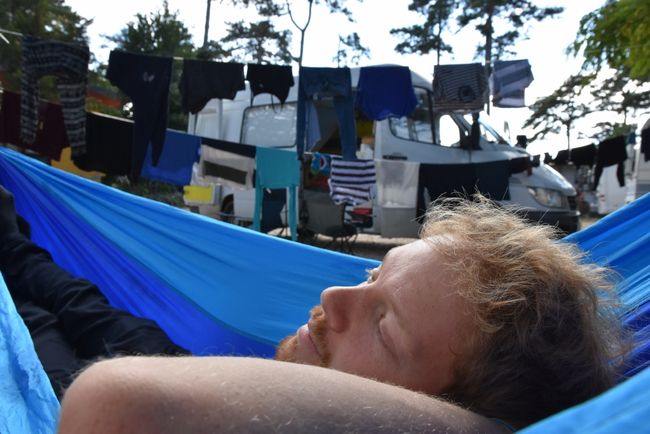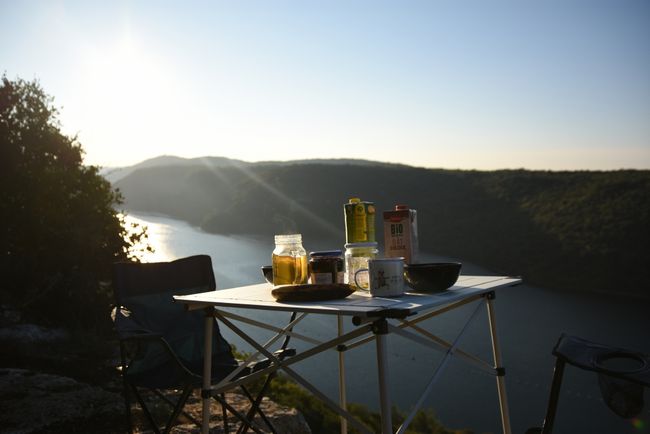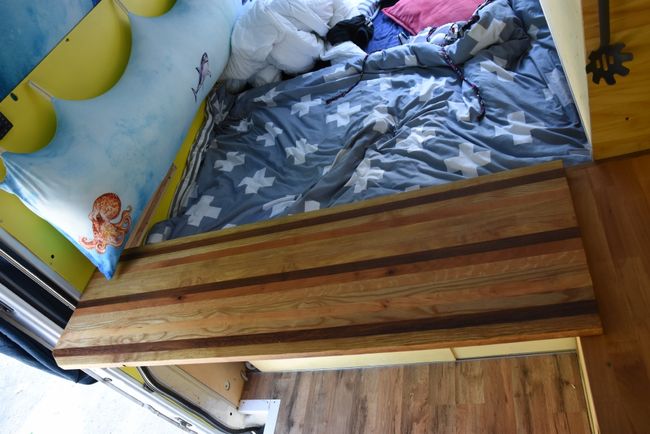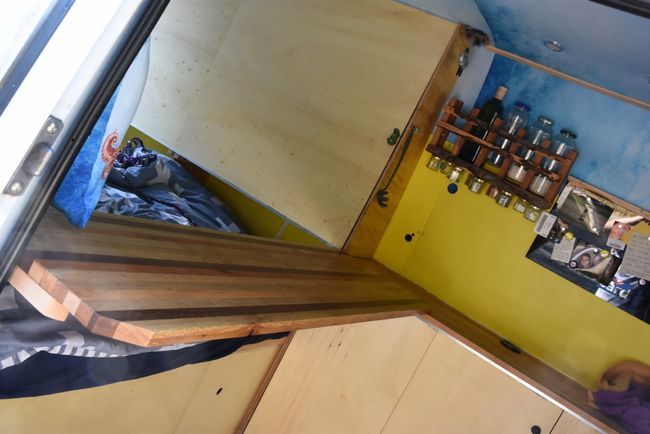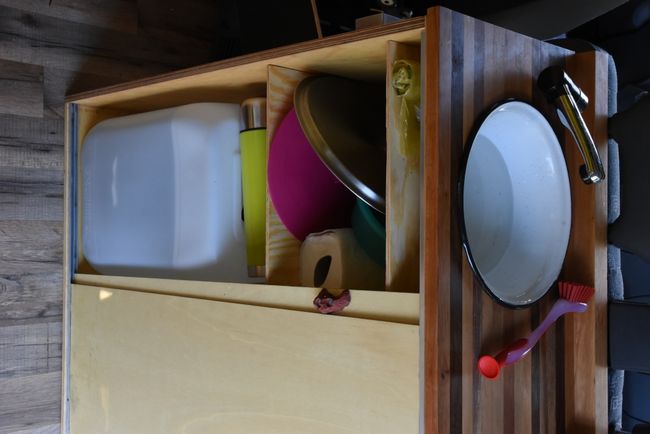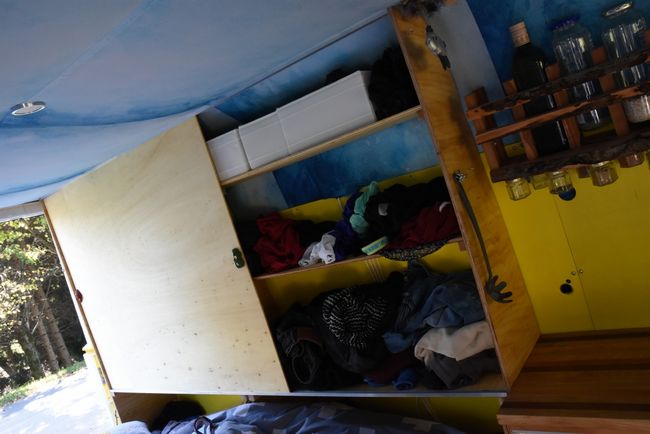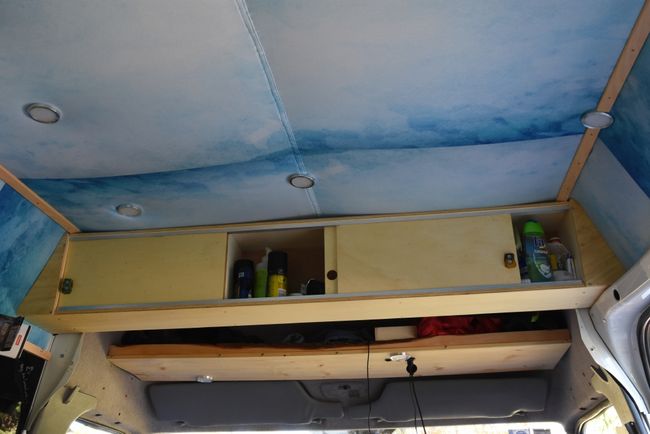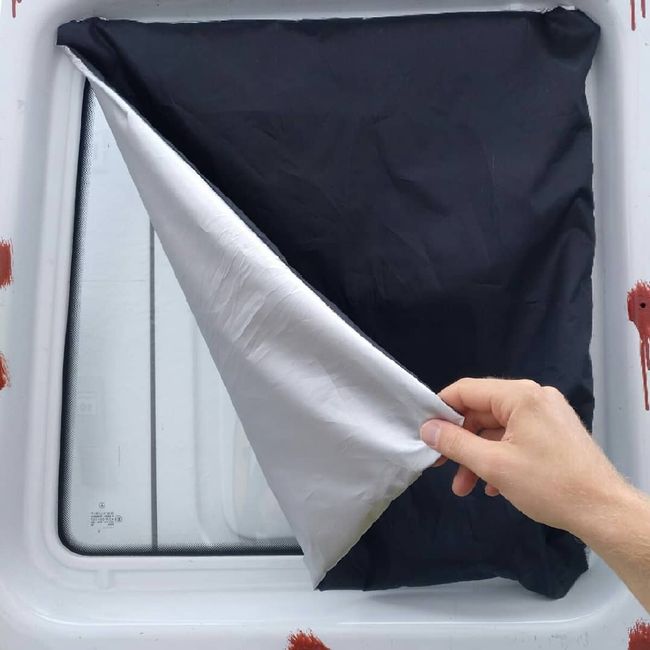Intermezzo Part 2 - Jan's perspective
게시됨: 24.10.2018
뉴스레터 구독
We have been on the road for almost 6 weeks now, exactly 42 days, 1,008 hours, 60,480 minutes, or 3,628,800 seconds. And every second is worth it =)
So far, we have already had so many beautiful, crazy, and interesting moments and have spent a lot of time in and around our van. It's time for a little look back on van life, where there have been difficulties, improvements could be made, and what else there is to tell.
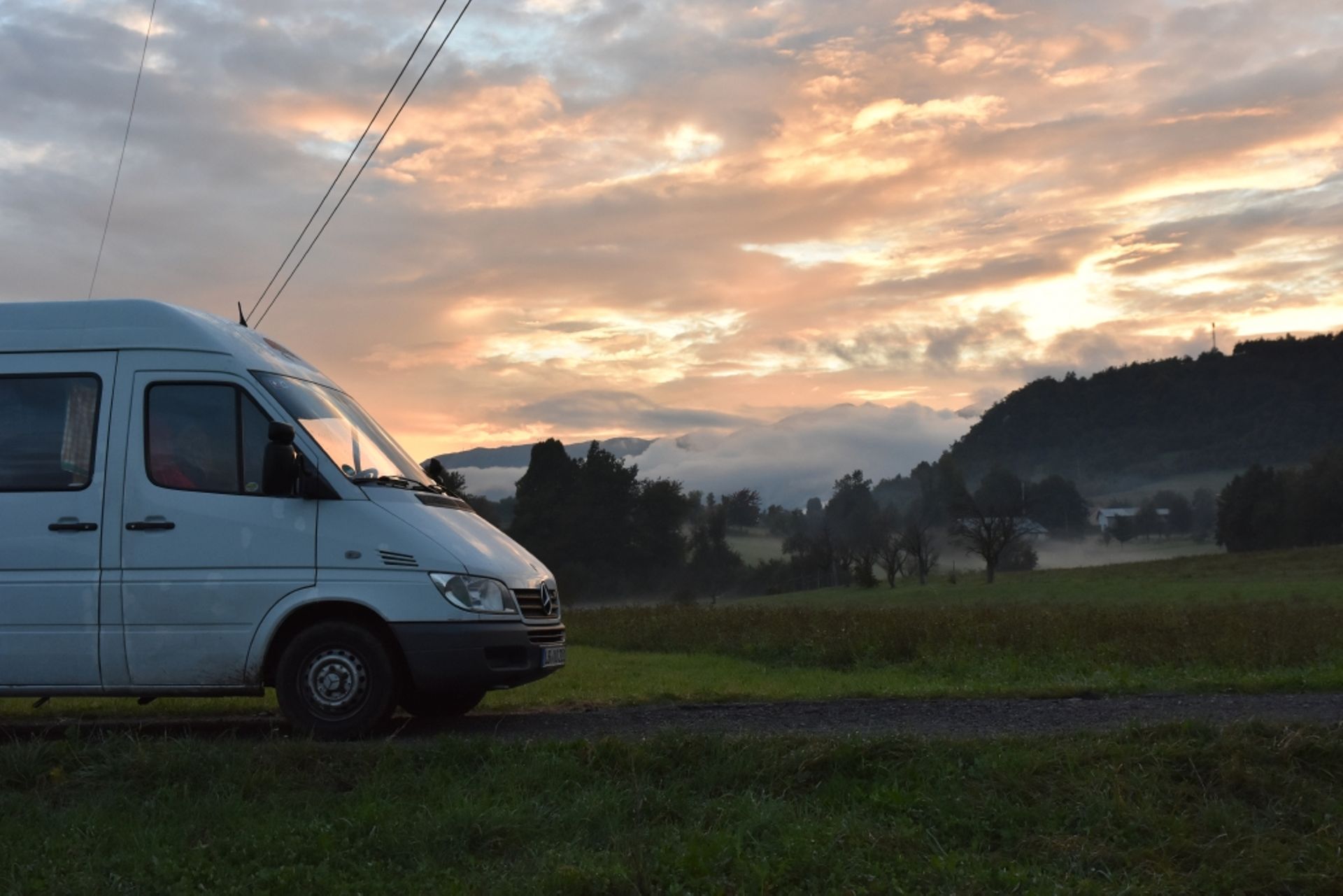
This is how Gretchen is allowed to live
Gretchen is well equipped to go wild. We have 60 liters of water, a second battery with 120Ah, a parking heater, a range of up to 1000 km thanks to a large tank, and a lot of storage space for food, clothing, climbing gear, and unimportant things. However, despite thorough planning, there are some small things that could have been thought through more carefully. To support you in the possible future conversion of a van, we would like to inform you about them.
Of our 60 liters of water, 30 liters are divided under the sink, which can be taken out via the faucet, and 30 liters are in the back, stored in two sealed 15 liter canisters. 30 liters is quite a lot, but it is quite uncomfortable to fill the water from the rear canisters into the front ones. Here I would like to install a 'water line' from the rear tank to the front, which is operated by a pump. However, having running water in the living area itself is an unimaginable luxury, you can hardly imagine it! Anyone who has already traveled in a van and had to deal with jugs and bottles will agree with me.

Water canister with sink
After initial difficulties with our boost charger, which unfortunately never really worked, we can finally charge our interior battery while driving with the replacement that was sent to us in Trieste. The electrical system is generally very good. We have USB charging ports next to the bed and above the front seats, allowing us to charge our devices almost anytime. The light is very bright and can be turned on in many different combinations, so we always have light exactly where we need it. My tip here is not to skimp on light, otherwise it will quickly become uncomfortable, and consider which lights you want to turn on and off from where and place the switches accordingly.
We have a total of six drawers under the bed, which are 90cm deep, 55cm wide, and 25cm high. Four drawers can be opened from the rear door and 2 from the interior. Unfortunately, the 2 drawers in the back on the right side can only be opened when both rear doors are open, as they are mounted about 1cm too far to the right. This is certainly only a small thing, but it could have been avoided. Regarding the drawer guides, it should be noted that high-quality guides with sufficient load capacity should be used, otherwise the drawers cannot be used properly. We have guides with a 700mm extension, which allows us to pull out almost the entire drawer. The load capacity per drawer is 25kg.
The sink, with its 28cm diameter, is unfortunately slightly too small for our plates, cutting boards, and similar items. Due to the cabinet it is embedded in, it cannot have a larger diameter. However, it can be rectangular and thus bigger, which we did not think of before. We will definitely retrofit this!
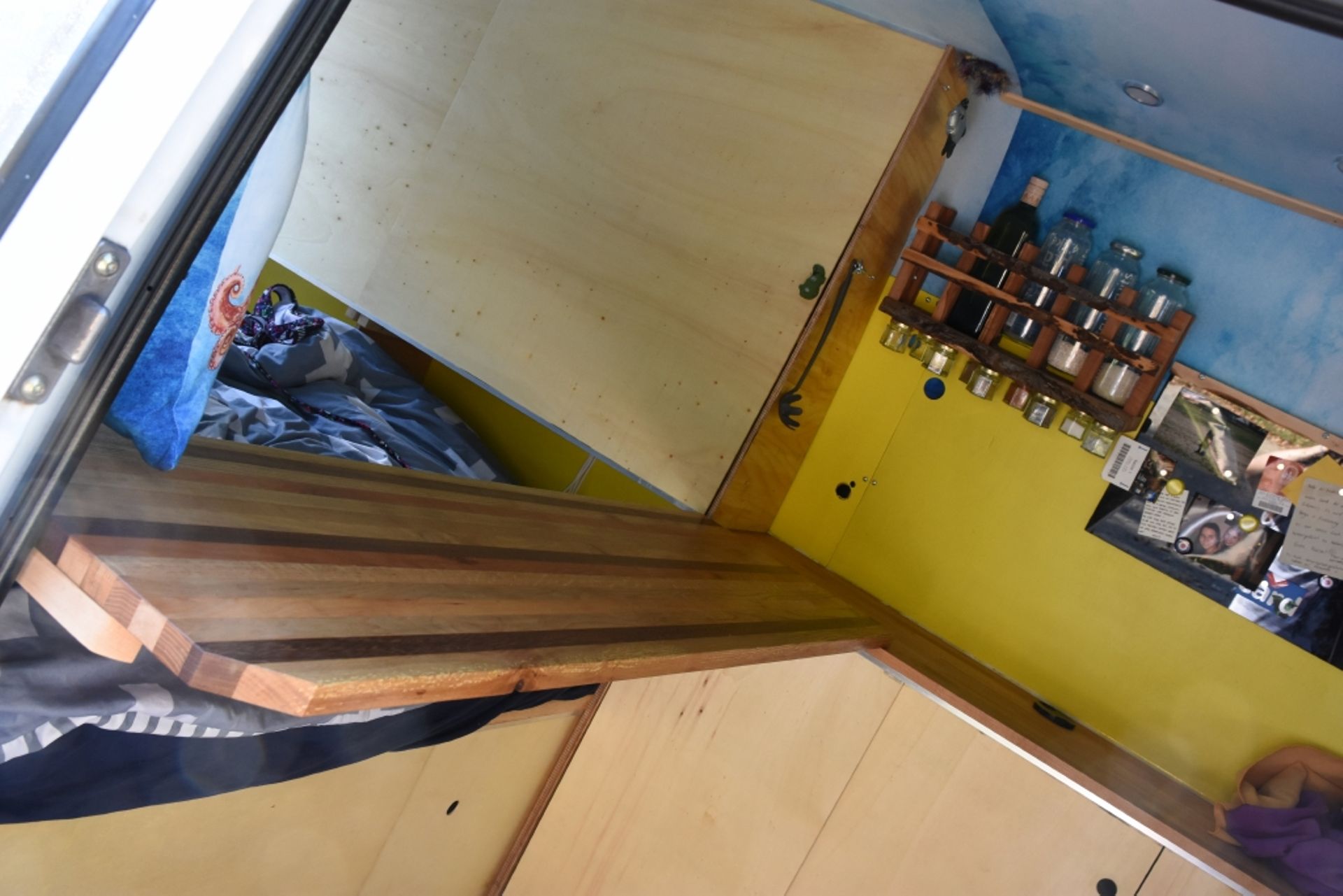
The table set up
We can use our large worktop as a table in front of the bed. This construction has proven to be absolutely reliable, very stable, and can withstand even our extensive feasts.
When it comes to cooking, I can report both positives and negatives. We have an extremely powerful stove (JV, model JV-03), which has 4.5kW per flame. This means that boiling water and heating up food is very quick. However, due to the strong odor when cooking, we have decided to cook outdoors whenever possible. Depending on the temperature, this can be quite chilly - the big advantage, of course, is that our home does not smell like fried onions ;)

Our breakfast table
Unfortunately, I discovered the quite affordable roof windows from Fiamma a bit too late, which offer a fully-fledged opening window for self-installation for 40 euros. Since everything except the last meter of the roof in front of the rear doors was already insulated, we now only have one roof window. But that alone is already very pleasant! Equipped with a mosquito net as standard, we have added an electric fan that starts working when the temperature rises. The fan is a huge 240mm diameter PC fan, capable of moving about 270 cubic meters per hour and is quite quiet. In retrospect, we would have liked to have a window in the kitchen area as well. I can only recommend installing two roof windows - the installation is very easy if you dare to cut the corresponding hole in the roof ;)
Our mattress has a special size, namely 140x190cm. Since I am only 1.74m tall, I assumed that would be enough - and it is! However, the missing 10cm should not be underestimated, as occasionally the feet stick out of the bed. However, the additional space gained here is not so significant, which is why next time I would use a 200cm long mattress.
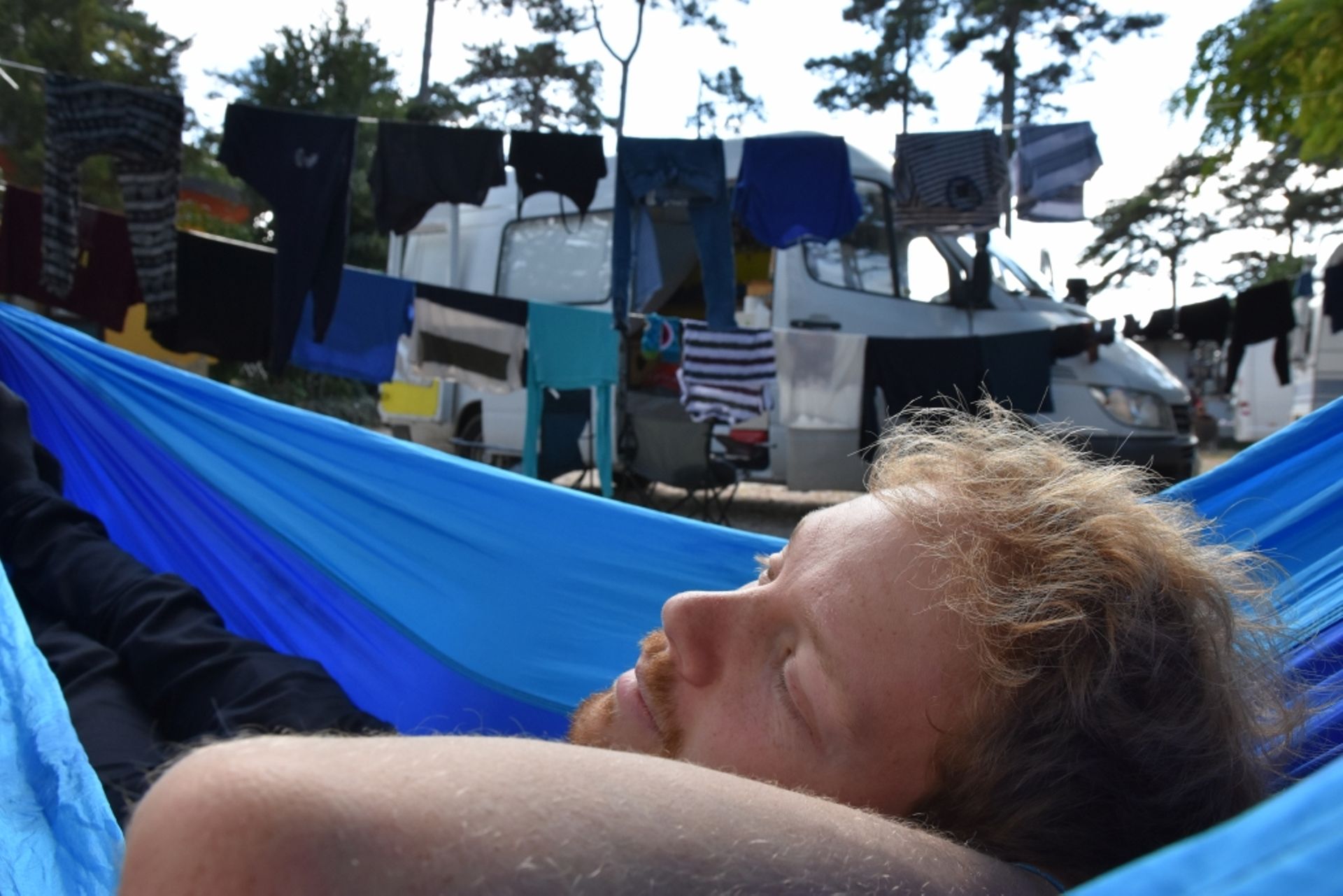
Drying laundry
A big topic when living in a van is dirty laundry and wet towels. We decided to use one of the empty compartments under the bed for dirty laundry. To dry towels and similar items, we use the side mirrors during the day and magnets at night or while driving, which can be used to attach the towels to the bars. In general, strong small magnets are very useful for hanging towels and clothes - we have distributed about 20 pieces throughout the van. The curtains also have built-in magnets and hold very well on the metal around the windows.
When traveling, it is recommended to always carry one liter of motor oil and distilled water or coolant. Gretchen occasionally needs a sip of coolant and on the road asked for motor oil for the first time. If you are in a remote area and notice an oil shortage, the drive to the next gas station can be quite nerve-wracking.
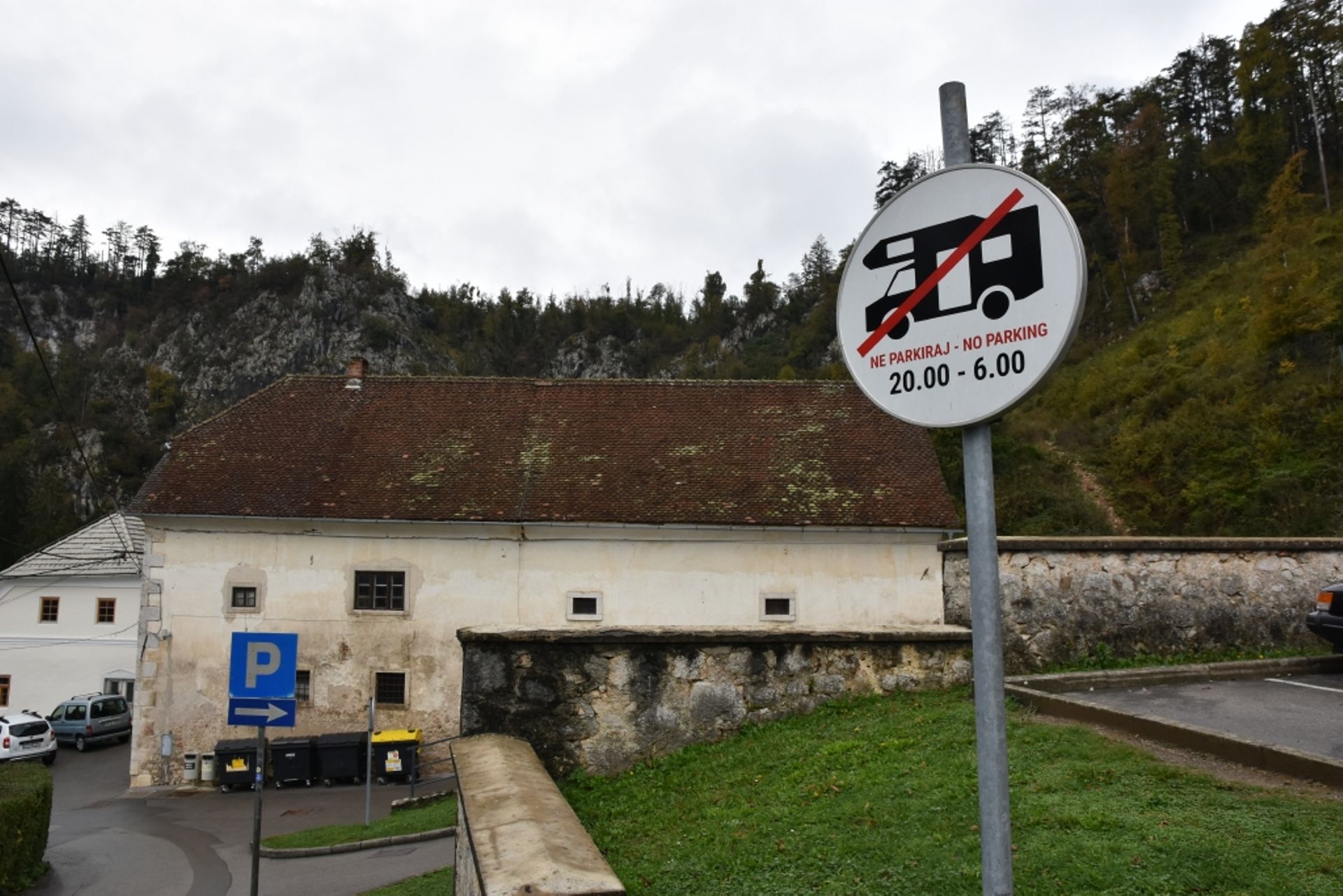
No camping allowed
We have been almost always warmly welcomed so far, received tips from locals on routes and areas that are particularly beautiful, and have almost always found a nice parking spot. However, the search for a parking spot sometimes proved to be more complicated than necessary. On almost every public parking lot in Slovenia, parking of motorhomes is prohibited after 9 pm. In Croatia, it is not quite as strict, but wild camping is generally prohibited here as well, and it can sometimes be difficult to find a parking spot. The fact that we are traveling outside the main season helps us a lot here, as suitable parking spots are rarely overcrowded, and residents and the police are more relaxed with fewer travelers in the country.
In general, we always try to take enough time to find a good parking spot. We always park away from houses, make sure not to leave any traces or garbage, and of course, not to use private property. It also helps to avoid staying where other campers are already parked, to have a garbage bag ready, to pick up other people's trash, and to always be "ready to leave." Upon arrival, we quickly put up our curtains so that our light is not immediately visible. If all of this does not help and a furious neighbor or the police show up, we have always gotten away undamaged with friendliness so far.
Otherwise, we are very well equipped for free camping and actually only spend a day at the campsite to do laundry and refill water. Our sink is definitely helpful for rinsing and brushing teeth. We usually take cold water and save water when showering, unless there is a river or lake nearby. So our water supply usually lasts for about a week.
As you can see, a few things that could be improved do not diminish our fun of being on the road with Gretchen, because the rest is simply wonderful! I hope you enjoyed this little insight and maybe it also provided some help for your own conversion.
Until next time, build on.
뉴스레터 구독
답변
